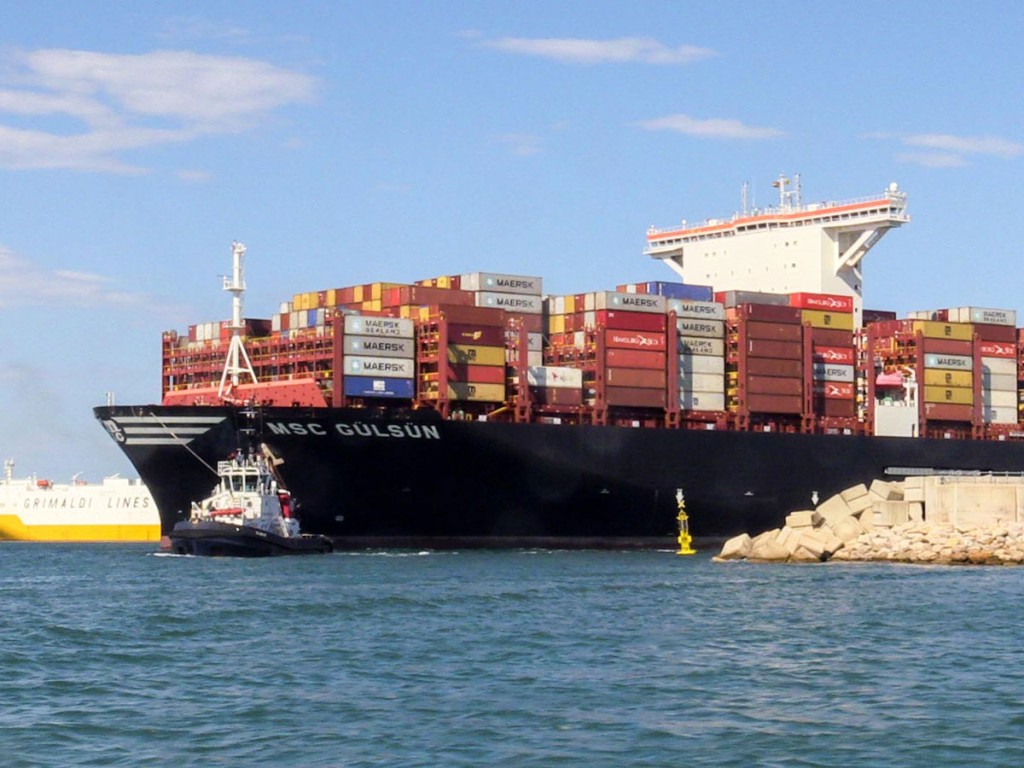Export freight rates from Valencia fell in one month in all the areas analysed, except for East Africa
The decrease in the Western Mediterranean (-10.26%) and the Far East (-1.34%) stands out
The macroeconomic scenario notes a slowdown in economic activity worldwide. Port traffic has fallen in Northern Europe (-6.1%) and Southern Europe (-2%)
The Valencia Containerised Freight Index (VCFI) for the month of September drops by 3.2% the cost of Mediterranean freight, in a year marked by the ups and downs of the Index which is conditioned by the uncertainty marked by the geopolitical situation and world trade. This is the third month in 2022 that it has fallen, especially in some areas such as the Western Mediterranean (-10.26%). In the year-to-date, the VCFI, an index based on the export prices recorded by the Port of Valencia in 13 geographical areas around the world, has stood at 4,762.46 points, accumulating since the beginning of the series in 2018 a growth of 376.25%.

The macroeconomic scenario, marked by high levels of inflation, interest rate hikes and lower levels of consumer liquidity, shows a slowdown in economic activity worldwide. This fact has led international reference organisations to revise global growth estimates downwards, which is already translating into a loss of momentum in global maritime traffic. According to information provided by the consultancy firm Linerlytica, port traffic has shown a year-on-year increase in North America of 1.7%, the Indian subcontinent of 5.2% and Latin America of 2.9%, while, as far as Northern and Southern Europe are concerned, traffic has decreased by -6.1% and -2% year-on-year, respectively.
With regard to the energy markets, the average price of Brent crude oil in September was $89.77 per barrel, compared to $100.45 in August, which translates into a decrease of -10.63%. Something similar has occurred in marine fuels, which have fluctuated downwards. Thus, according to the data offered by Ship&Bunker for bunkering (refuelling of ships at sea) in the 20 main ports of the world, the price of VLSFO (Very Low Sulphur Fuel Oil) has gone from 823.5$ in August to 725$ in September, which represents a drop of -11.9%.
In reference to the capacity on offer, as noted by the consultancy Alphaliner, the count of the fleet of inactive containerships has increased with respect to the previous month. As a result, 76 vessels were idle in mid-September, representing a total of 254,807 TEUs, or 3.6% of the total fleet.
Another fact to highlight, because of the impact it has on the levels of capacity offered, and because of the relief that its control implies for the supply chains, is port congestion. Thus, according to Linerlytica, congestion has been reduced compared to previous months to 11.4% worldwide. This congestion is affecting the territories and their ports differently according to their characteristics and levels of activity.
As regards the analysis of the different areas that make up the VCFI, the fall has been the general trend in all the areas analysed, except for Africa East Coast, which has increased by 5.72%.
VCFI Western Mediterranean
As for the Western Mediterranean sub-index, a decrease of -10.26% was observed with respect to the previous month, standing at 2,203.27 points, and accumulating a growth of 120.33% since the beginning of the series in 2018.
In this area, the effect of the decision taken by the Algerian government to suspend the trade agreement signed with Spain continues to stand out, which has led to a significant reduction in trade flows with this country from Valenciaport. On the other hand, it is worth highlighting the increase in traffic to Morocco and Tunisia.
VCFI Far East
About the Far East area, a drop of 1.34% is observed, standing at 3,595.70 points, which represents an accumulated growth of 259.57% with respect to the start of the series in January 2018.
In this area, the decrease in Valenciaport's export flows with China continues despite the proximity of China's Golden Week, which has historically encouraged shippers to anticipate their orders ahead of the New Year holiday peak. However, as explained by the Freightos platform, many of them have decided to cancel their advance orders, which could be explaining the fall in the level of freight rates with this area.



-25-year-extension-_-_127500_-_31e3336ae66616c1378205f46c2112aa6f8c22cd_yes.png)






